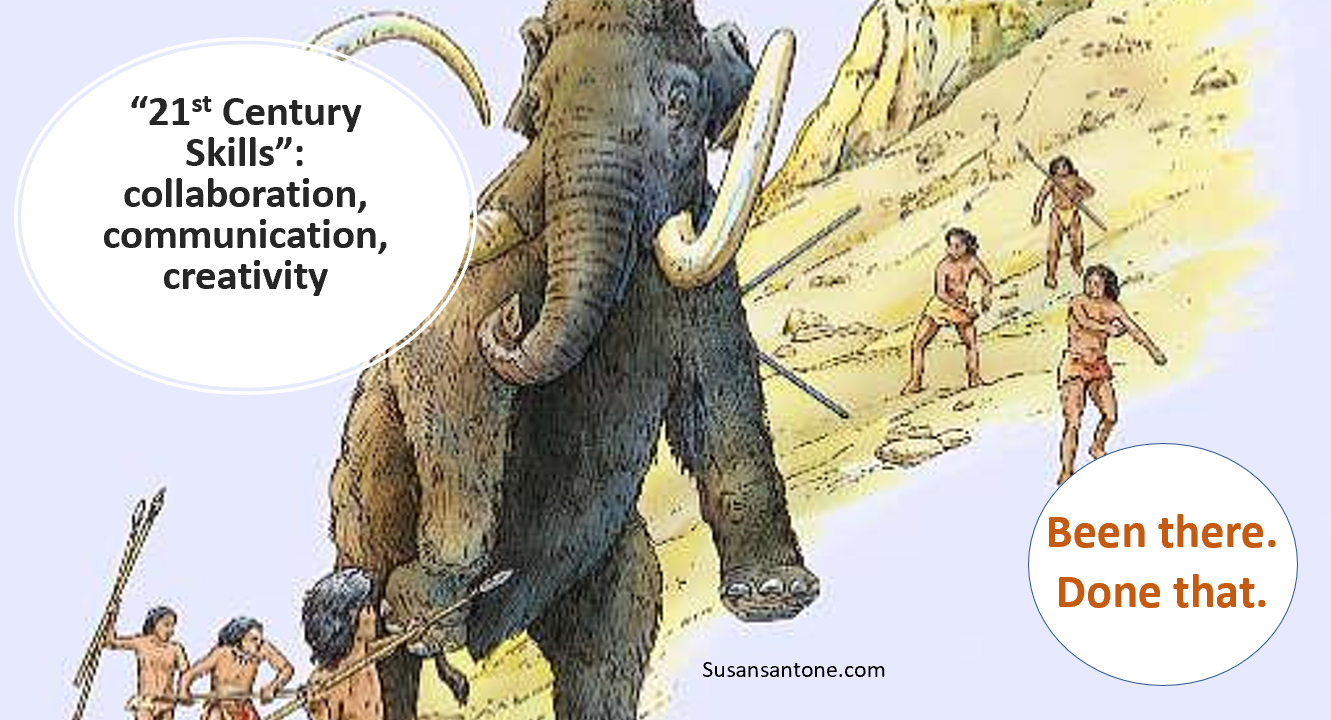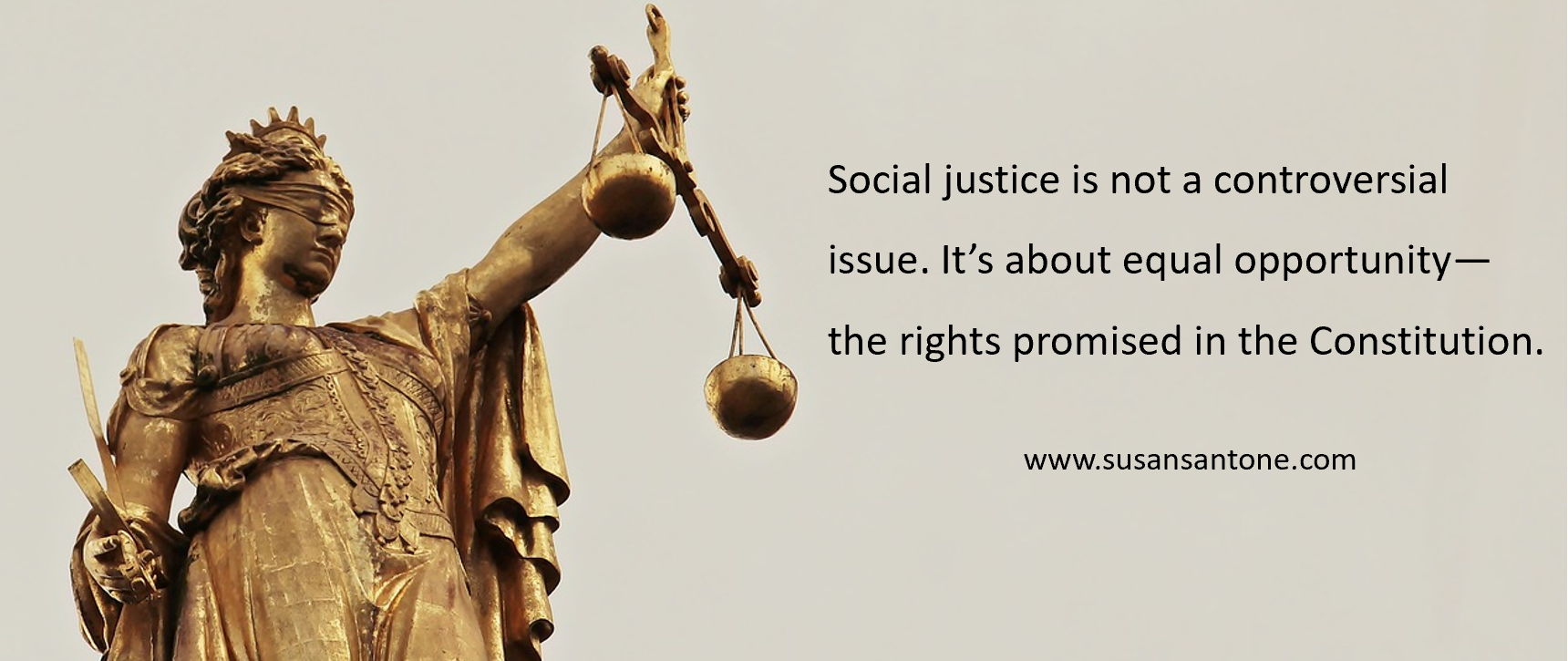The hard work of becoming informed citizens is a dying art, but we can revive it. The health of our democracy depends on it. Effective dialog is the foundation.
Teaching Kids About Consumption: A Systems Thinking Approach
When it comes to sustainability in the curriculum, consumption is a popular topic that’s relevant to kids. But how can you address this important topic in ways that build critical thinking instead of simplistic answers?
Read More22nd Century Learning Requires Ancient Skills
It’s time to rethink the mantra 21st Century Skills: They’re nothing new, and we need to aim beyond 2099.
We live in a time of great change: accelerating use of technology, global instability, shifting ground for energy security, all coupled with potential climatic changes that could create millions of climate refugees displaced by flood, drought, fire, and rising sea levels.
Against this backdrop has been the relentless call for educational reform based on “21st Century Skills” such as the oft-cited “4 Cs” of critical thinking, creativity, collaboration, and communication.collaboration. The trend was launched in part by well-funded coalitions of business leaders, educators, and technology companies, such as Achieve and The Partnership for 21st Century Skills (which became the Partnership for 21st Century Learning). Raising the alarm about dwindling U.S. competitiveness, the movement has built its rationale on the urgent need to “prepare students to compete in the global economy”—the cornerstone of neoliberalism.
Sure, jobs are crucial, but the mantra offers deafening silence about the basis for the global economy: the environment. By failing to co-center issues such as climate change, the 21st Century movement does nothing to advance economic literacy based on immutable ecological principles (the transdisciplinary thinking that defines the field of ecological economics). And, when we consider that a child born today may well live to see the 22nd Century, it’s clear that we need to look beyond 2099.
Skills for the 200th Century BCE (Before the Common Era)
No doubt collaboration, critical thinking and communication are vital skills to prepare students for the future. But far from being new, humans (and other species) have practiced these competencies for a long, long time.
Like, since the dawn of humanity.
Human adaptation and evolution has been dependent upon cooperation, relationship-building and collaboration within and across communities. Hunting and gathering—perhaps the earliest human “economy”—required extensive knowledge of the landscape as well as communication, coordination of tasks, experimenting and addressing fundamental questions such as What is safe to eat?, How can we get enough?, and What happens if we deplete this area? The big solutions of the day—such as taking down a mastodon—must have certainly required extensive planning, coordination and problem-solving. In short, these skills have been around for hundreds of centuries before the Common Era (BCE).
As we fast-forward through time, the so-called 21st Century skills were employed again and again in the development of agriculture, cities, global commerce, cultural expression, technologies, and more—in short, in every aspect of human history.
So what’s changed?
While the skills are not new, the scale of today’s global challenges changes the landscape in which skills must be employed. For example, the implications of new technologies and instant communication demand unprecedented levels of media literacy. Climate change and food security and water availability are just a few of the issues that will unfold in the 22nd century and beyond.
Advocate of the skills are thus correct in reviving them. Classroom practices too often reflecte an obsolete factory model designed to develop a compliant workforce. Rote work, ordered rows, adherence to rigid directions, one-way delivery of content by teachers (“the boss”), and a day controlled by bells are great ways to squelch collaboration and student-led problem-solving.
Time for 22nd Century Thinking
In these rapidly changing times, the skills movement is certainly correct in shining the light on the 4 Cs. But skills—no matter how essential—are not enough. We must teach skills in the context of content knowledge (one must have something significant to think about).
Of course, content is not equally important. Not all topics or content are worthy for students’ time and attention. Students must gain knowledge that builds upon the past while preparing them for the 22nd Century (and beyond, for their children). We need to expand our view beyond economic competitiveness and consider the health of communities, our social fabric, and the environment that contains it all. To do otherwise is myopic and will leave students blindsided by the challenges they will face.
Social Justice: It's democratic (small d), not Democratic
Advocating for social justice is an ideological, left-wing, radical agenda, right? Not so fast. When we look at the core principles of social justice, we see that it’s about something far from controversial: democracy. Huh? Yup. This post explains why.
Read More


